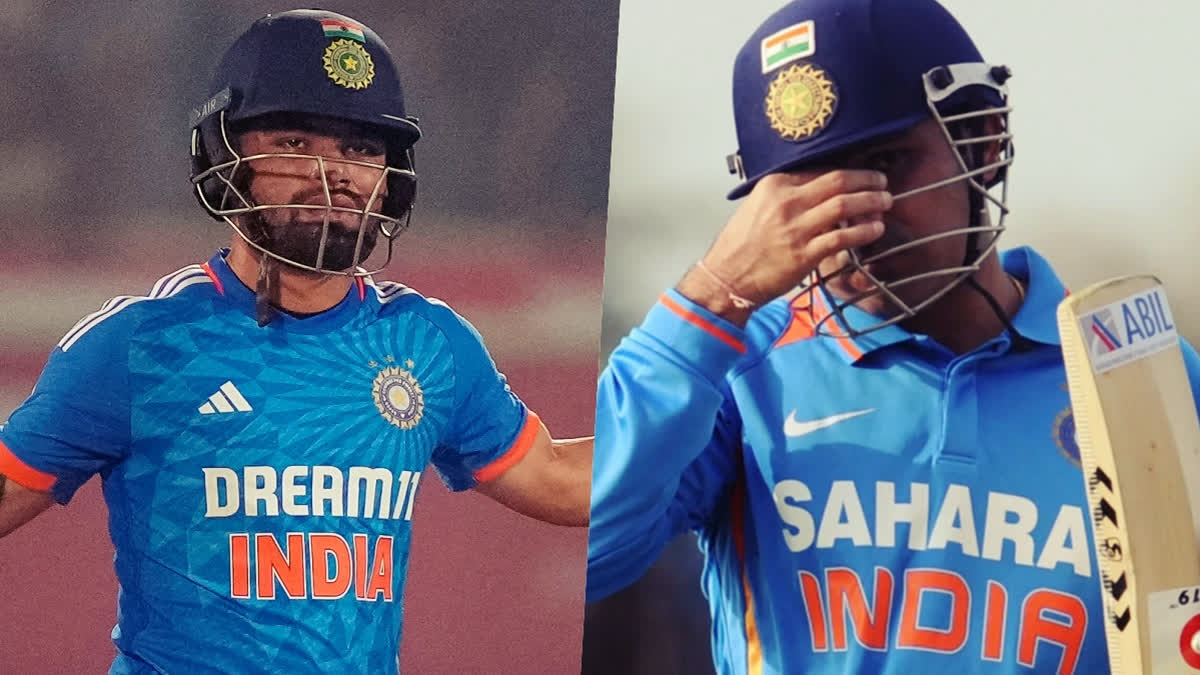Hyderabad: Star India batter Rinku Singh calmly bludgeoned a six-off pacer Sean Abbott on the last ball, who had delivered a no-ball, as India emerged victorious in the thriller first T20 match of the five-match series against Australia at Vishakhapatnam on Thursday.
Rinku Singh hammered the ball from Abbott over long-on for a maximum as Indian fans erupted in celebration. But the umpire then signalled a no-ball because Abbott had overstepped. While India's win was secure, the six runs were not added to Rinku's total.
Interestingly, a similar kind of incident happened in the year 2010, when former Indian skipper Virender Sehwag needed just one run to complete his century and India too needed one run to win the match and Sri Lanka's off-spinner Suraj Randiv deliberately bowled a no-ball to restrict Sehwag from his ton during the tri-angular series. On the very same ball, Sehwag came down the track and hit it for a maximum over mid-off fielder, but as per the rule, he remained one run short of his century.
According to the International Cricket Council (ICC) Men's T20I Playing Conditions, clause 16.5.1 states that as soon as a result is reached as defined in clauses 16.1, 16.2, or 16.3.1, the match is at an end. Nothing that happens thereafter, except as in clause 41.17.2 (penalty runs), shall be regarded as part of it.
In the India versus Sri Lanka clash in Dambulla, put into bowl, left-arm spinner Pragyan Ojha took a three-wicket haul while Praveen Kumar, Ravindra Jadeja, and Ishant Sharma claimed two wickets each to wreak havoc on Sri Lankan batters to bundle them out 170 runs. In the 171-run chase, Sehwag played an exceptional innings on 99 runs off 100 balls and single-handedly took India to victory.
Randiv has picked 36 wickets in 31 ODIs he played for the national side. He also represented his country in 12 Tests (43 wickets) and seven T20s (7 wickets). He had even played for Chennai Super Kings (CSK) in the 2011 season of the Indian Premier League (IPL). The off-spinner was part of Sri Lanka's playing eleven in the 2011 World Cup final against India at the iconic Wankhede stadium in Mumbai.
Read more



